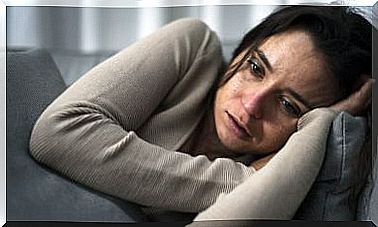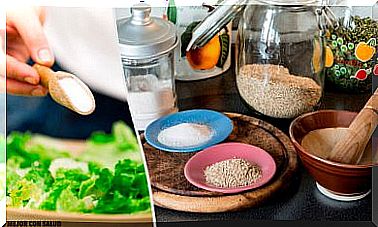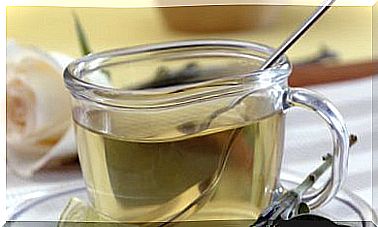Avoid Heat Stroke With These Tips
Good internal and external hydration is essential to avoid heat stroke. During the summer the recommended 2 liters of water should become 3.
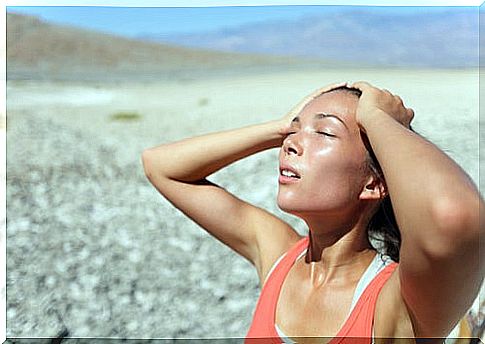
When summer begins we enjoy more outdoor activities and many times we do not realize that we have been exposed to too much sun until we feel dizzy or have a headache.
By that time several hours have passed since we should have stayed in the shade.
In this article we tell you how to avoid heat stroke with some tips.
Necessary measures to avoid heat stroke
Dehydration and hot flashes are common in these times. Although children and the elderly are more vulnerable to heat stroke, it is essential that we all take certain measures to avoid them.
Symptoms can vary from person to person. However, headaches, dizziness, flushed skin, and fever are common.
We can also suffer a drop in pressure and weaker breathing. Among the recommendations to avoid heat stroke we find:
1. Don’t overeat

Although we are on vacation or take advantage of lunch time to go to a terrace in the city, we must pay attention to what we consume.
- Large meals, especially at noon, can predispose the body to heat stroke.
- Also, as we feel “heavy” after eating a lot, it is likely that we stay in the sun resting and suffer the consequences.
The best thing then is to eat fresh and light foods such as raw fruits and vegetables.
Smoothies and salads are our best allies at this time. In turn, it is recommended not to drink coffee, alcohol or sugary soft drinks because they increase dehydration.
2. Increase water consumption
The so famous “2 liters of water per day” are sometimes insufficient, especially if we are from here to there for our work or daily activities.
- When it is very hot the dose should be increased to 3 liters per day.
- In case you are not very fond of mineral water, you can also drink natural infusions (for example green tea with lemon) or squeezed juices (not industrial).
- Carry a bottle of water with you everywhere and drink before you feel thirsty.
3. Avoid the hottest hours
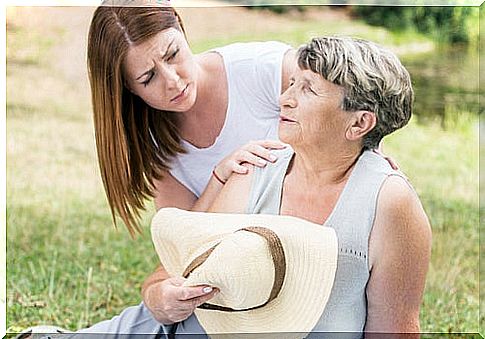
This means that you try to do your outdoor activities first thing in the morning or after 5 in the afternoon.
Although there are tasks that cannot be performed at these times, we recommend that you start your days earlier and that you do not go out into the street at noon.
If you have to, apply a high protection factor and don’t forget to bring a hat.
Although it is very nice to have lunch outdoors, choose those places that have umbrellas or spaces with air conditioning. If you are on vacation, a dip in the pool before eating can help lower body temperature.
4. Do not do demanding physical activity
If you like to exercise, you don’t have to leave it in the summer, but keep in mind the time you do it.
- Choose the first hours of the morning or when the sun goes down.
- If possible, do not go to closed or hot places and reduce the intensity of physical activity. For example, jogging is preferable to running.
5. Wear appropriate clothing
Say goodbye to dark colored garments and thick fabrics. Although this may seem obvious, it is important to note that light clothing and light materials prevent heat stroke.
- Also pay close attention not to squeeze the abdomen or ankles.
- Clothing that is too tight to the body is not recommended either.
- As for accessories, you can not miss sunglasses and hats or scarves to protect the head.
6. Get wet frequently
It does not matter if we are on the beach, in the office or doing business in the city.
- It is always good to wet your forehead, neck and wrists with a little water to avoid heat stroke.
- Don’t wait until you feel dizzy or out of energy to cool down. As with drinking water, introduce this habit into your day and, if necessary, set an alarm so you don’t forget.
7. Stay in cool places
Shopping centers are one of the places chosen in the summer…. Even banks or certain public offices fill up with people at noon and not precisely because they love doing paperwork.
What happens is that in these places the air conditioning is usually on continuously. Try to choose cool places when you have lunch or take a break in the hottest hours (between 11 and 5 in the afternoon).
8. Use protective creams

Even if we do not go to the beach, we also need to apply a protection factor in the city. When leaving home, place a good amount.
- Put it back on again, at least two more times a day, since perspiration or contact with water will remove the cream.
- The most vulnerable places are the face, shoulders and upper back.
9. Consult a doctor
As soon as we feel dizzy or our pressure drops, we should stop doing everything and sit in a cool and airy place.
If possible, we should drink several glasses of water. If the symptoms persist, do not hesitate to go to the doctor’s office.


